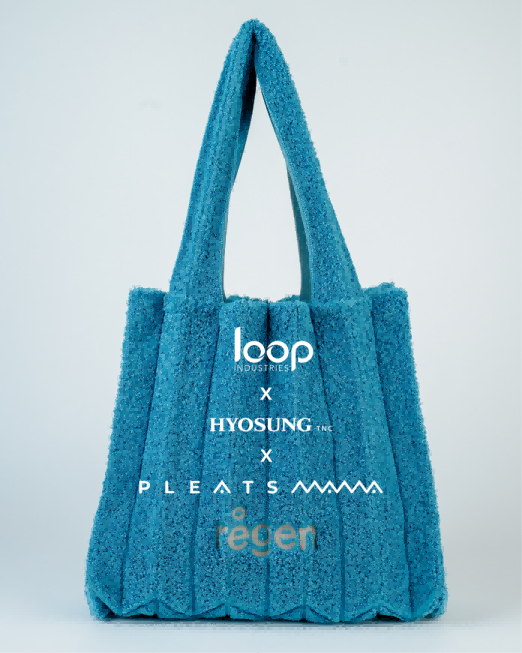Loop Industries, Inc. , a clean technology company dedicated to accelerating a circular fashion economy, has announced a groundbreaking three-way collaboration with Hyosung TNC, a leading sustainable textile solutions provider, and Pleatsmama, an innovative sustainable fashion brand. Together, they have produced limited-edition handbags using 100% recycled drawn textured yarn derived from low-value mixed polyester textile waste through Loop's Infinite Loop™ T2T recycling technology.

This partnership represents a significant step forward in advancing circular fashion by demonstrating the viability of textile-to-textile recycling at a commercial scale. The process begins with Loop transforming discarded polyester textiles into virgin-quality recycled polyester chips. Hyosung TNC then spins these chips into high-performance yarn, which Pleatsmama uses to create stylish, eco-conscious handbags—showcasing that sustainability and design can go hand in hand.
Polyester accounts for roughly half of the global textile market, a large portion of this ends up as waste, unsuitable for conventional recycling and often destined for landfills or incineration. Loop's Infinite Loop™ T2T recycling technology addresses this challenge by processing even low-value, mixed, or colored polyester waste into high-quality recycled polyester that matches the performance of virgin materials. This closed-loop system reduces greenhouse gas emissions by up to 80% and cuts non-renewable energy use by 91% compared to traditional polyester production.
"Working with Loop and Pleatsmama allows us to offer a tangible circular fashion solution that supports our customers' sustainability goals," said Chihyung Kim, CEO of Hyosung TNC. "Loop's technology helps keep textile waste out of landfills while reducing the need for virgin materials." Giovanni Catino, Vice President of Sales and Business Development at Loop, added, "This collaboration proves that T2T recycling can shift the industry from a linear to a circular model. We're turning waste into valuable resources without compromising quality."
